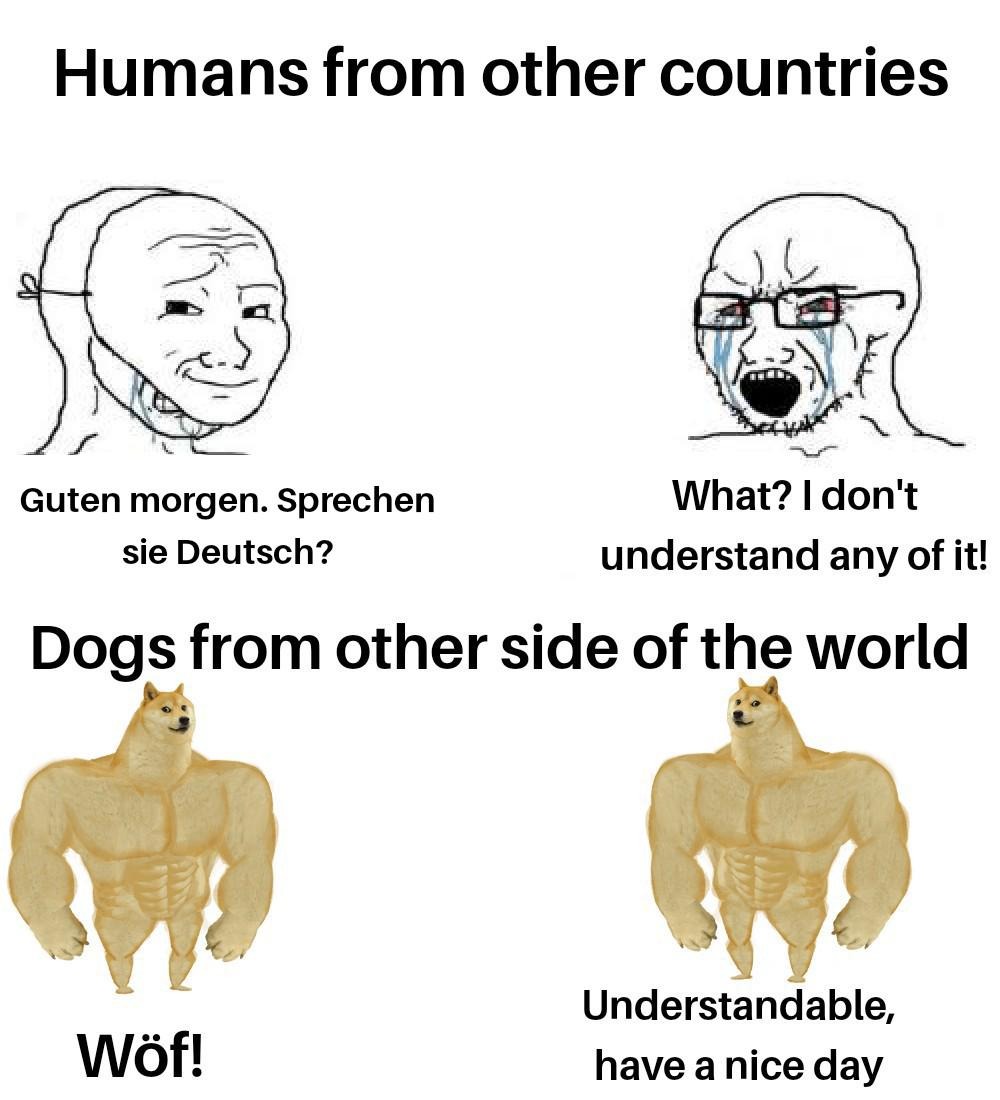this post was submitted on 02 Oct 2024
445 points (97.6% liked)
Memes
8938 readers
2740 users here now
Post memes here.
A meme is an idea, behavior, or style that spreads by means of imitation from person to person within a culture and often carries symbolic meaning representing a particular phenomenon or theme.
An Internet meme or meme, is a cultural item that is spread via the Internet, often through social media platforms. The name is by the concept of memes proposed by Richard Dawkins in 1972. Internet memes can take various forms, such as images, videos, GIFs, and various other viral sensations.
- Wait at least 2 months before reposting
- No explicitly political content (about political figures, political events, elections and so on), [email protected] can be better place for that
- Use NSFW marking accordingly
Laittakaa meemejä tänne.
- Odota ainakin 2 kuukautta ennen meemin postaamista uudelleen
- Ei selkeän poliittista sisältöä (poliitikoista, poliittisista tapahtumista, vaaleista jne) parempi paikka esim. [email protected]
- Merkitse K18-sisältö tarpeen mukaan
founded 2 years ago
MODERATORS
you are viewing a single comment's thread
view the rest of the comments
view the rest of the comments


German: "There are like...a lot of different ways to say 'the' based on case and gender and you'd better believe most answers you might come up with as a non-native speaker are wrong."
English: "THE is THE!"
Seriously, English has its flaws, but the simplification of article adjectives is one area where it shines.
When it comes to the articles themselves, it's less that English simplified them and more that it never developed case marks for them. For example, when se→þē split into what's today "the" and "that", that "the" was already invariable.
In contrast, not only German repurposed the demonstrative "der" (that, which, who) into an article in a cleaner way, but it's also dumping most grammatical case info into the article - so it's bound to preserve a lot more forms for them. (It still simplified them a bit though. Compare this with this).
[Sorry for hopping in to nerd out about language.]
Well, Old English baggs to differ. English lost its case markings on articles early on and kept them on nouns a while longer while German kept them on articles and simplified nouns much more early on.
... as did English with "se"/"þē" which started as a demonstrative the same way der/die/das did.
Again, German didn't dump anything into articles but rather lost it everywhere else.
There is this idea that this fostered the process of using der/die/das much more often (which made it from a demonstrative to an article) but I disagree because it was a widespread process, not only in German but in huge parts of Europe, including beside Romance languages also English were this reasoning doesn't work (as shown above).
That sē is still the determiner, now with an additional function as an article, not an independent article. What I said applies to the article as its own thing, i.e. when "the" and "that" were already independent words - in fact their decoupling is directly tied to the same loss of the endings that caused the morphological case system to go kaboom.
I'm talking about the informational load, you're talking about the phonetic changes.
It's actually both a shift promoted by interactions between languages in the Western European Sprachbund and the result of simple sound changes. Much like a vicious cycle:
Higher usage of demonstratives as articles might be also caused by interference of other languages - that guy spamming "that" and "one" in a language will eventually do the same if speaking some another nearby language. And it also explains roughly why German ended as the exception, as it's right in the middle of the way between "case endings, no articles" Polish and "articles, no case endings" Romance.
Then, in German you got that weird middle ground where word order still conveys topic, but the noun endings already weren't conveying the case any more. The info gets dumped in the article - and that prevents further sound changes and regularisation processes from attacking them.
The first thing that comes to mind when I hear "English has flaws" is the spelling. Consequence of being a mongrel language.
I also think it's weird that we say the adjective before the noun, as opposed to, say, Spanish where it's the other way around and you say what the thing is BEFORE describing it. "The white..." "The white what? THE WHITE WHAT??" "...wall." "Oh, okay."
Finnish: "Wait, you guys have articles?"
Simplification is great for language learners but an outright flaw for lossy communication. Whenever you lose some part of a sentence through interference (like a movie that decided to have a scene with people whispering at actual whispering intensity) the redundancies help in understanding the correct meaning of the sentence.
Additionally, native speakers of any language (usually) have an intrinsic understanding of more complicated grammar so there is no real advantage in simplification for them.
On the other hand having clearer forms allows for more complicated yet accurate sentences (not needed for communication but beautiful).